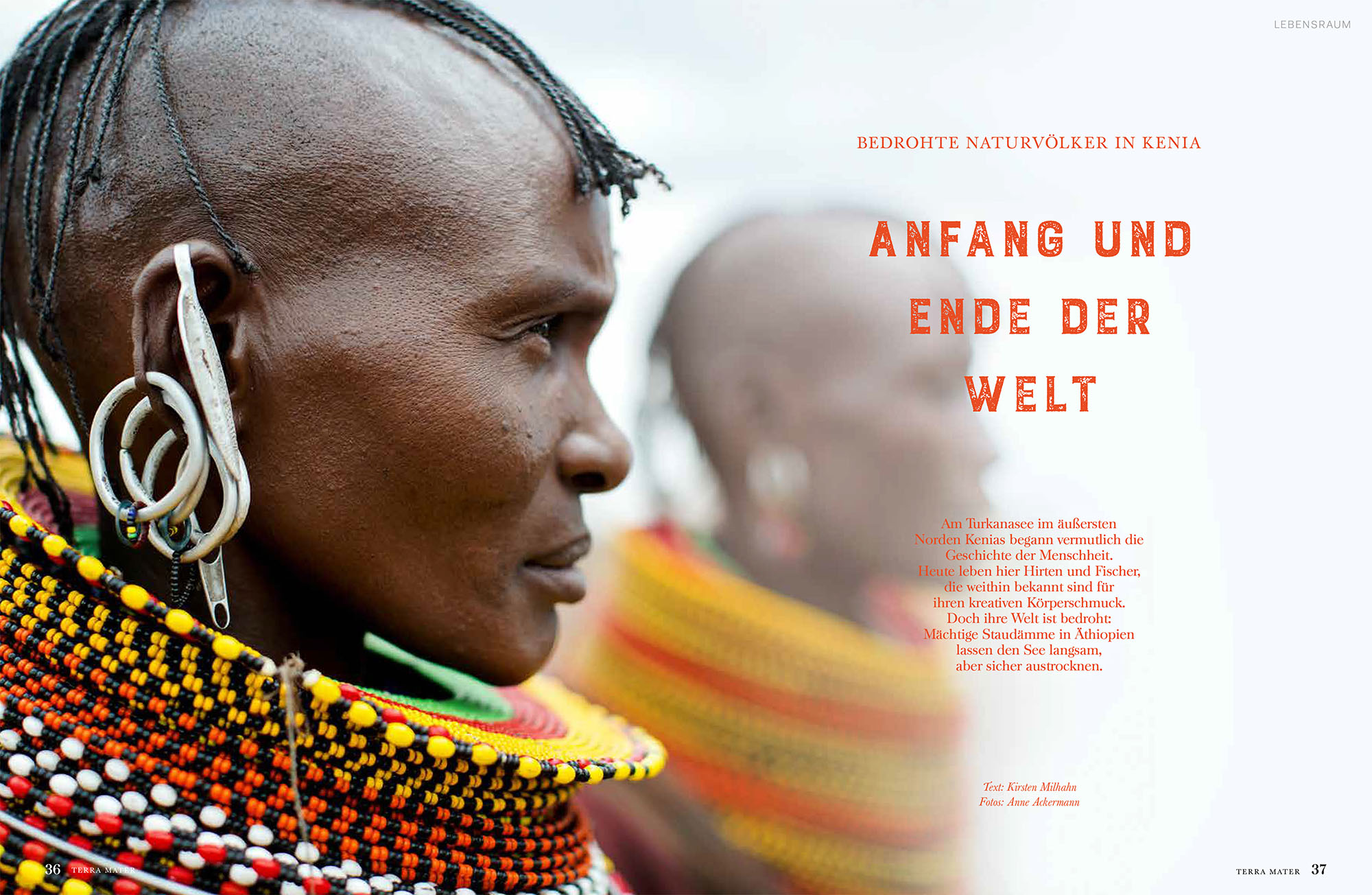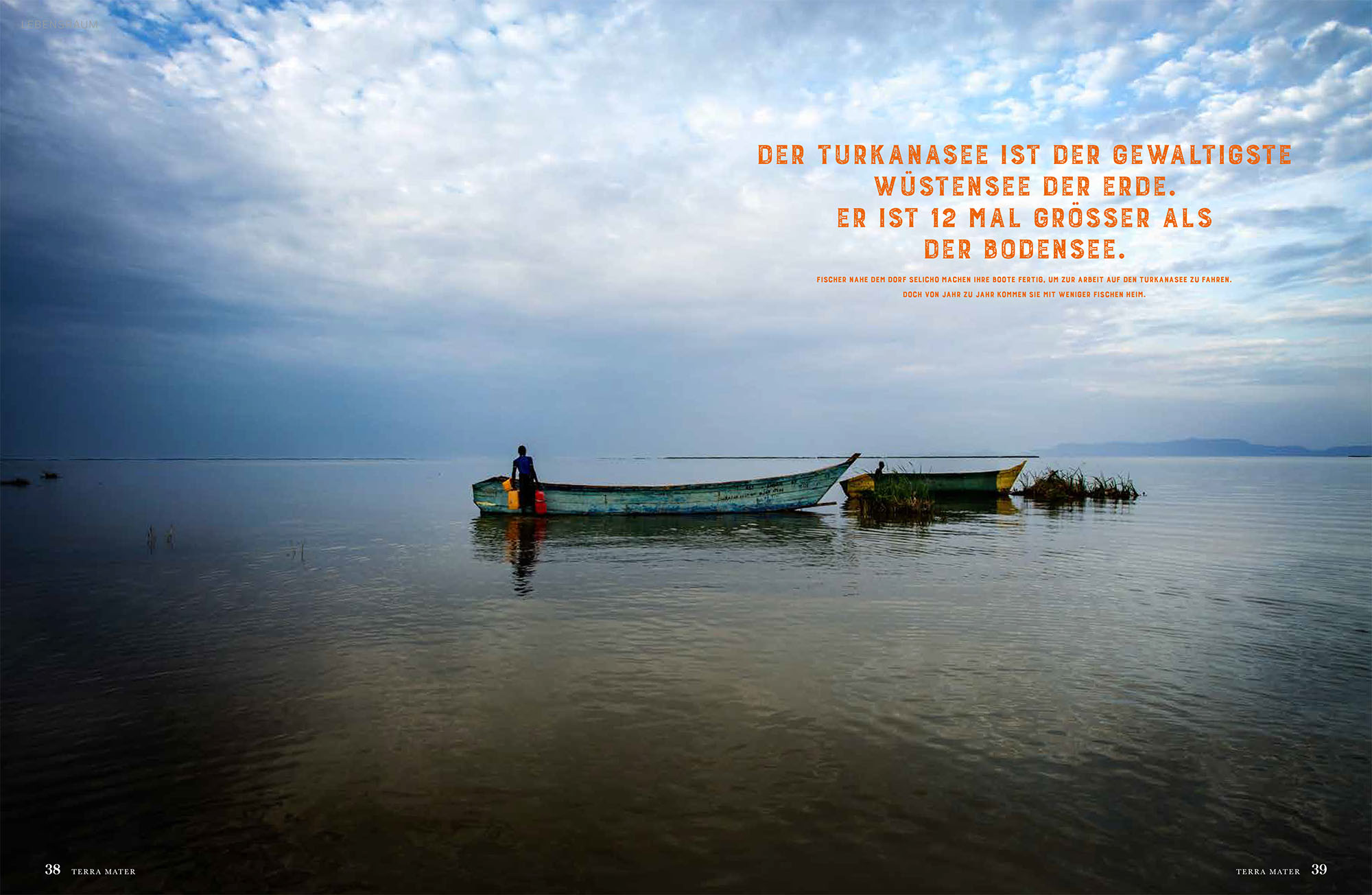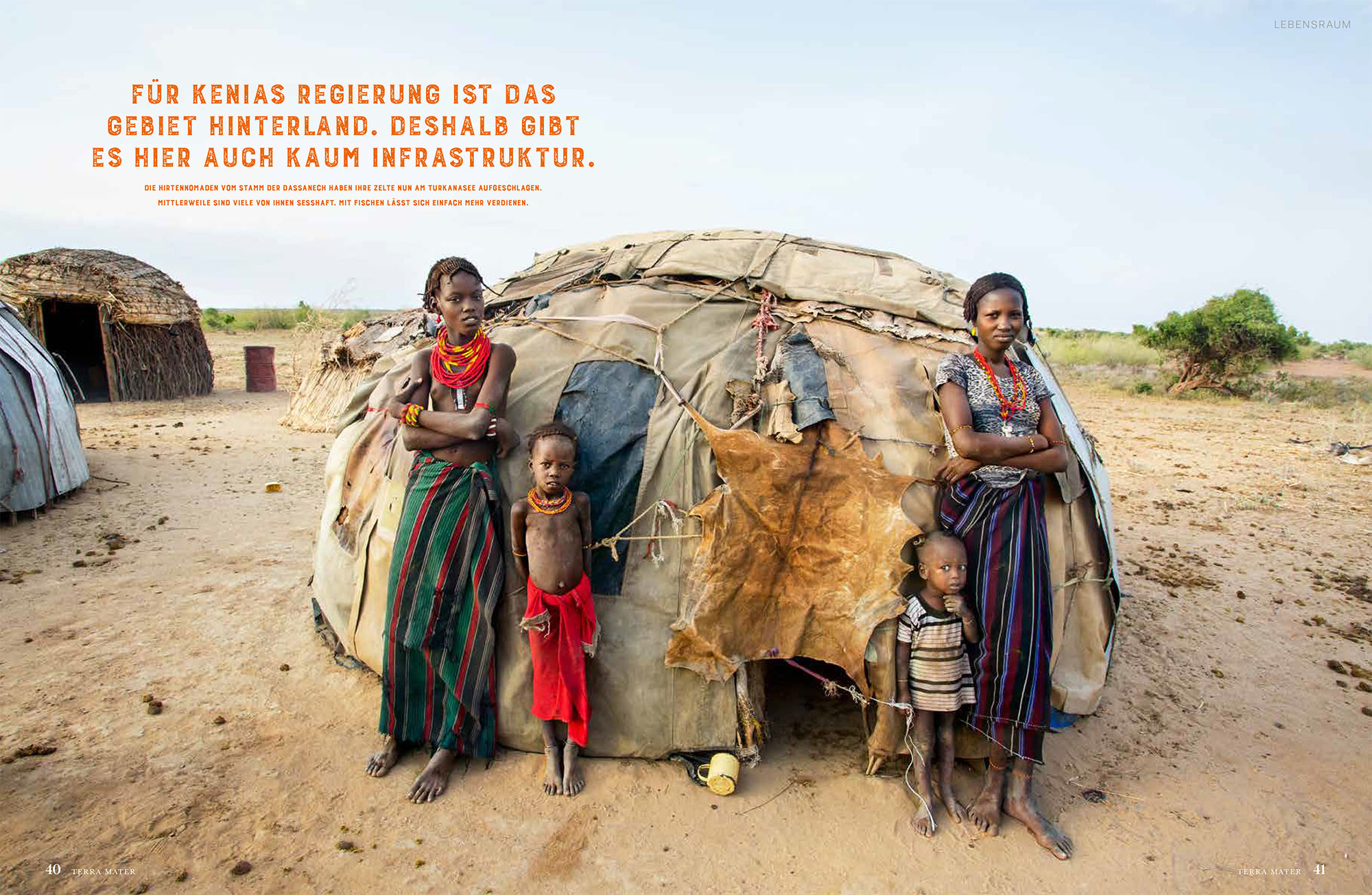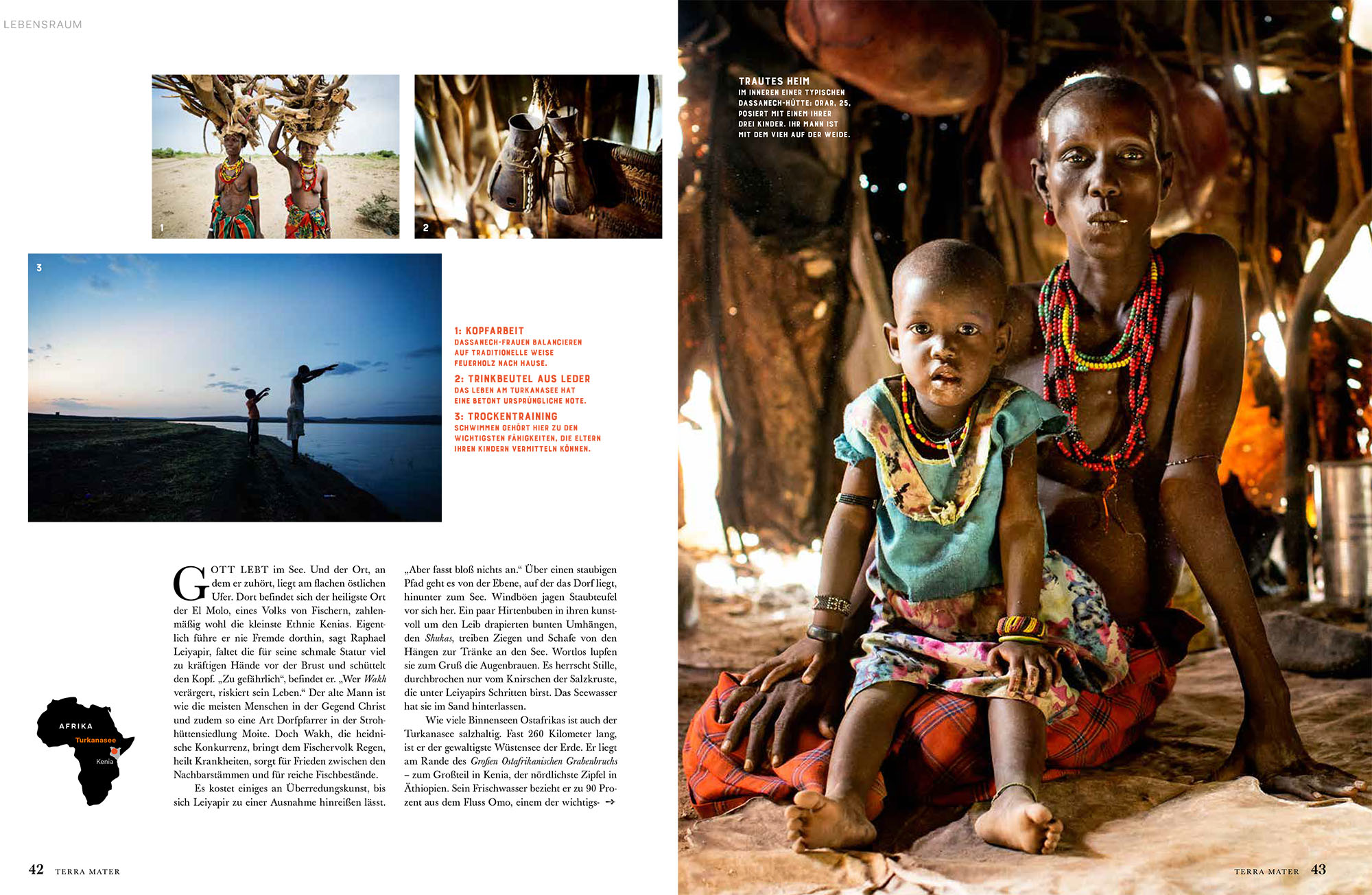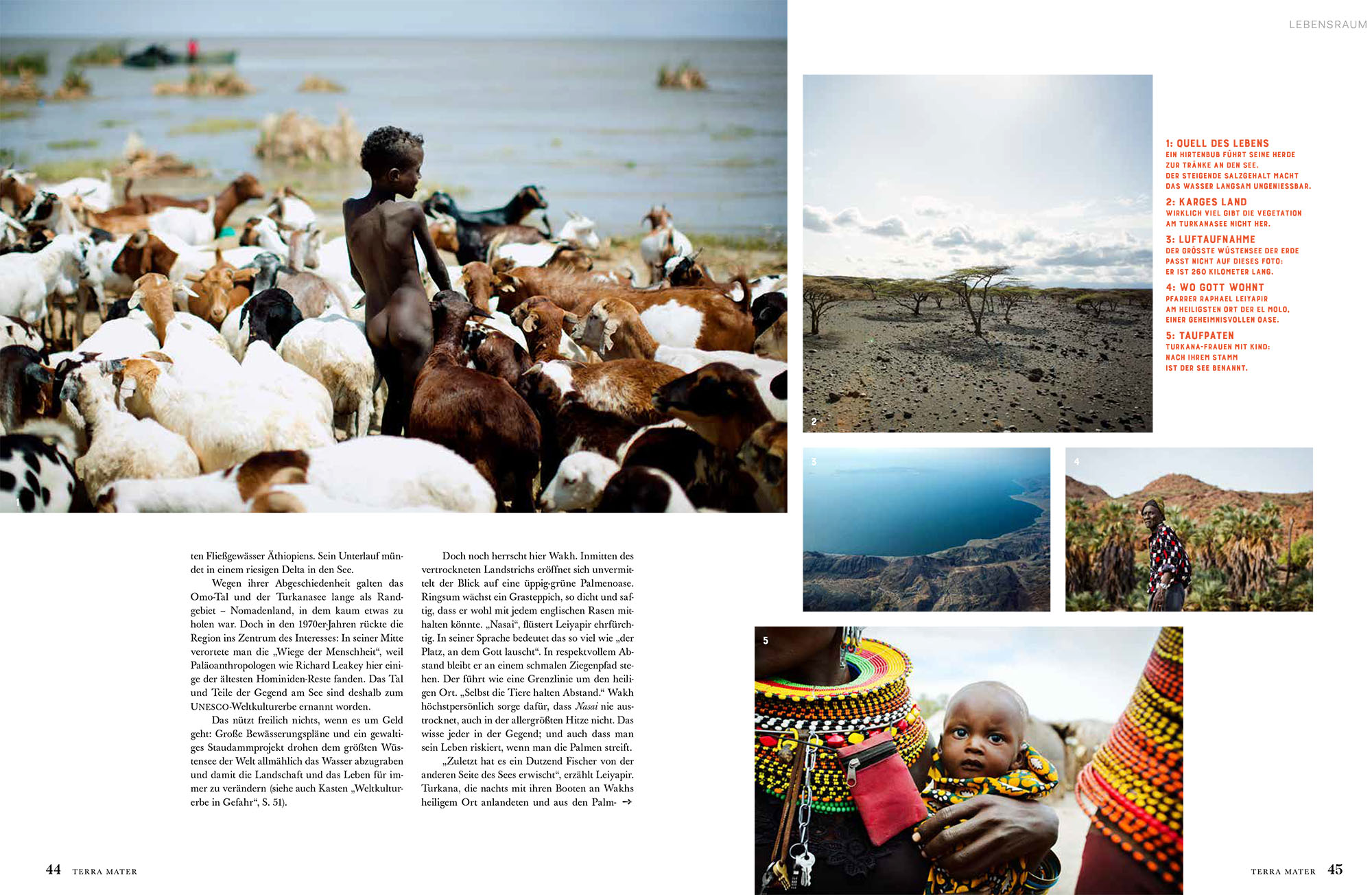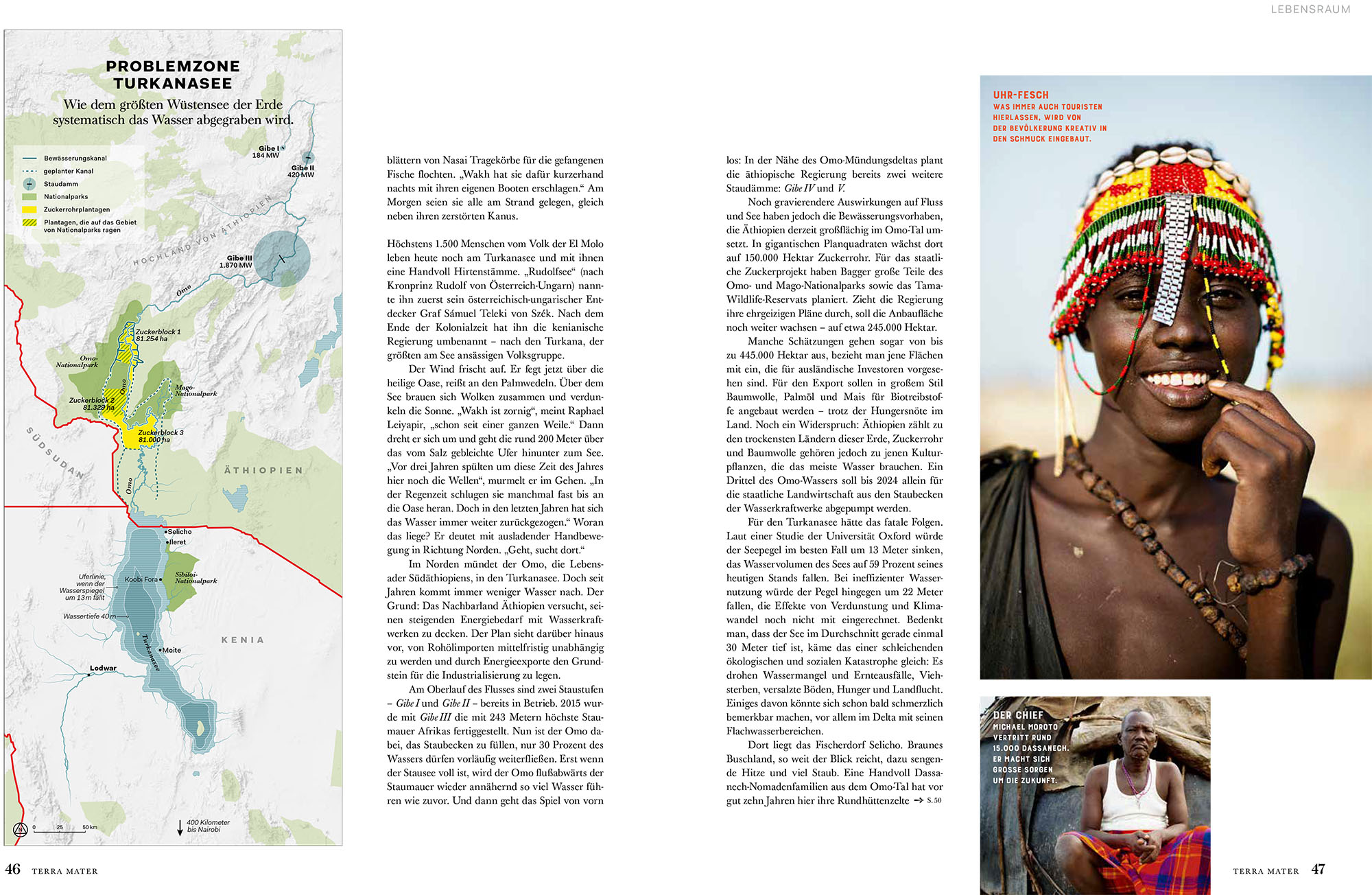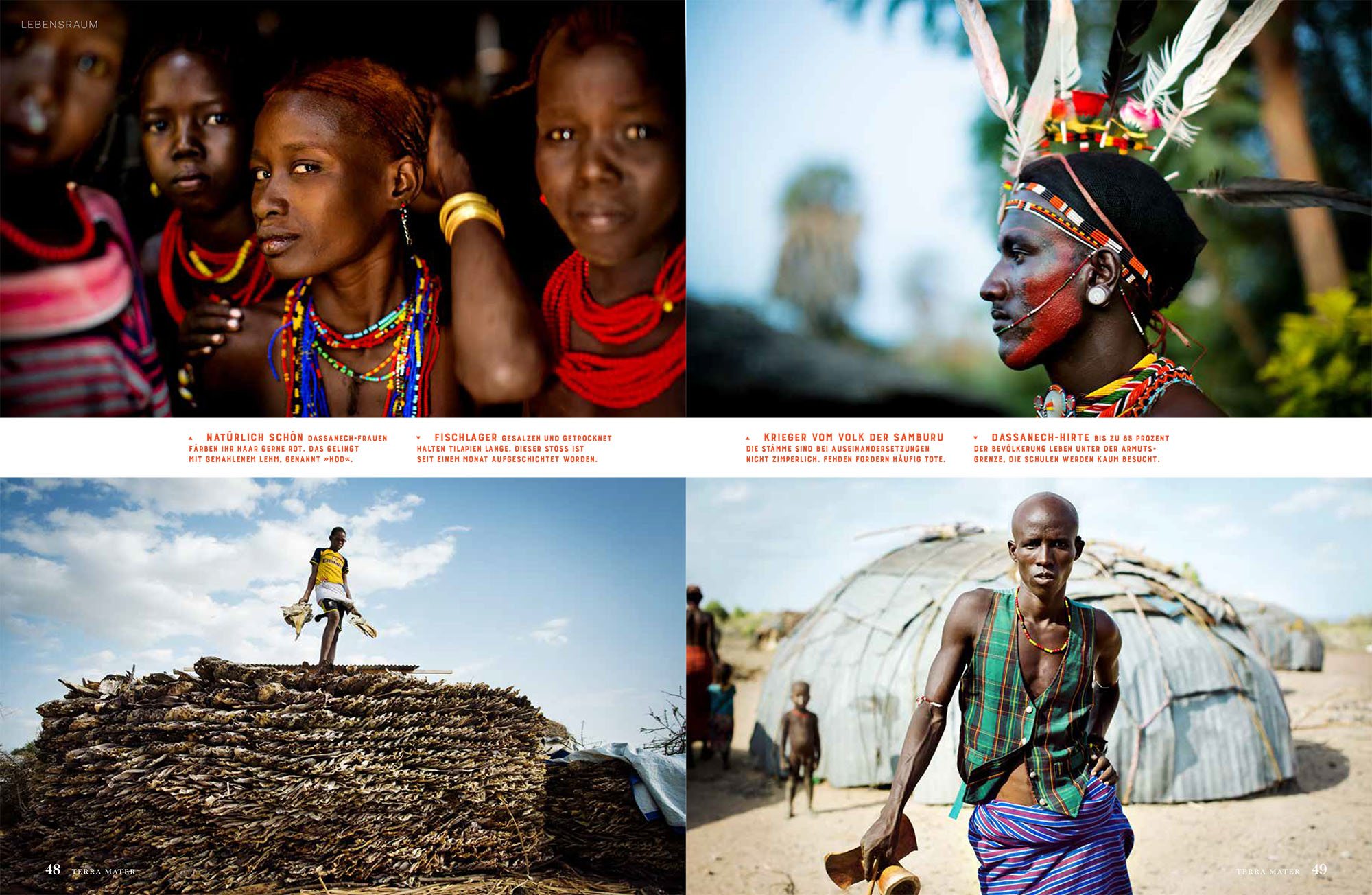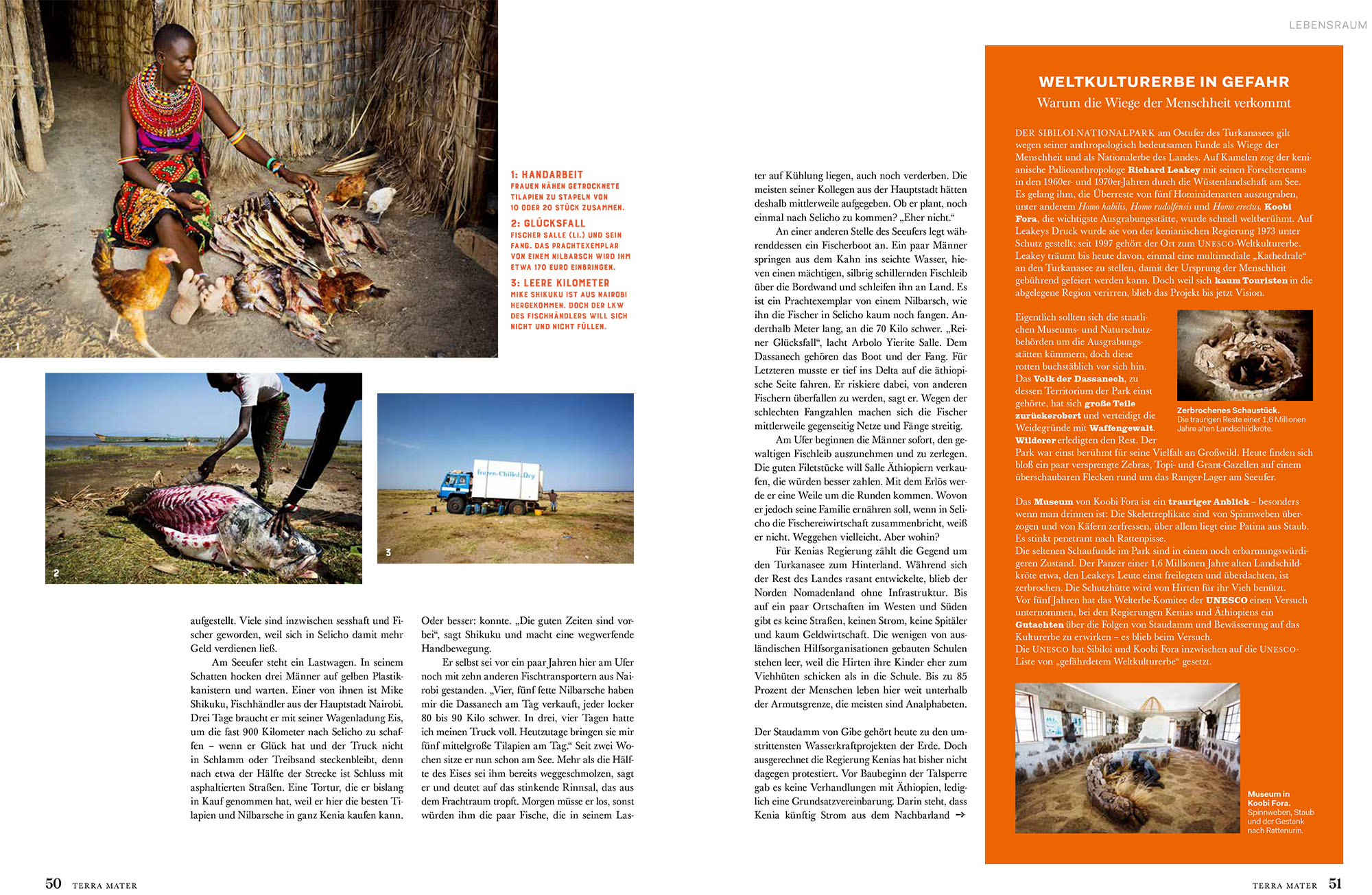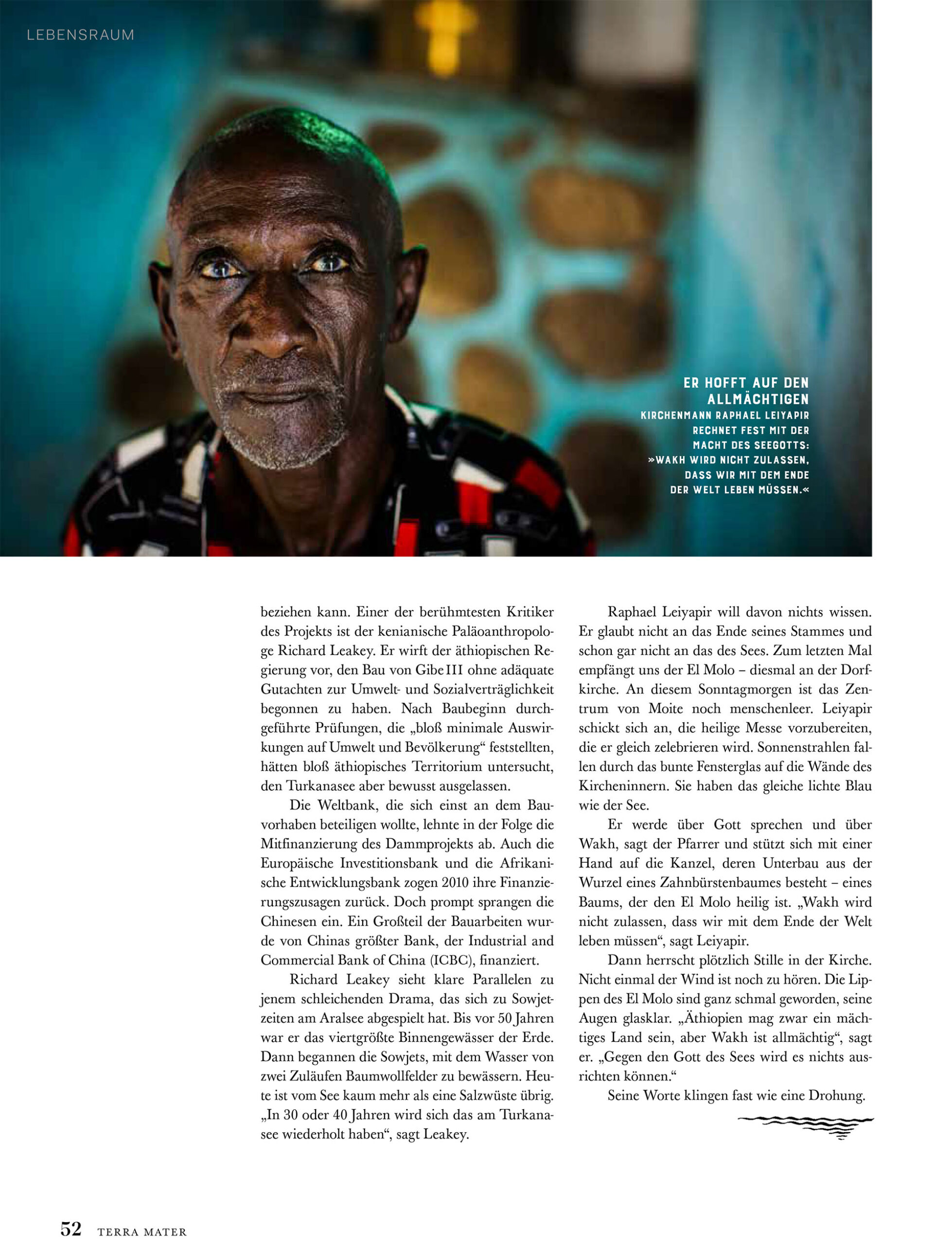The history of mankind probably began at Lake Turkana in the far north of Kenya
Today, shepherds and fishermen live here, who are widely known for their creative body decorations, but their world is under threat: mighty dams in Ethiopia are slowly but surely drying up the lake
GOD LIVES in the lake. And the place where he listens is on the shallow eastern shore. It is the most sacred place of the El Molo, a tribe of fishermen, probably the smallest ethnic group in Kenya in terms of numbers. He never actually takes any foreigners there, says Raphael Leiyapir, folding his hands in front of his chest, which are far too big for his small stature, and shaking his head.
‘Too dangerous,’ he states. ‘Anyone who upsets Wakh is risking their life.’ Like most people in the area, the old man is a Christian and also a type of village priest in the straw hut settlement of Moite. But Wakh, the pagan rival, brings rain to the fisherfolk, heals diseases, ensures peace between the neighbouring tribes and rich fish stocks. It takes a lot of effort to persuade Leiyapir to make an exception. ‘But don't touch anything.’ A dusty path leads from the plain on which the village lies down to the lake.
Gusts of wind chase dust devils before them. A couple of young shepherds in their colourful shukas, draped artfully around their bodies, herd goats and sheep from the slopes to the watering point by the lake. They raise their eyebrows wordlessly in greeting. Silence reigns, broken only by the crunching of the salt crust that bursts under Leiyapir's footsteps. The lake water has left it in the sand.

